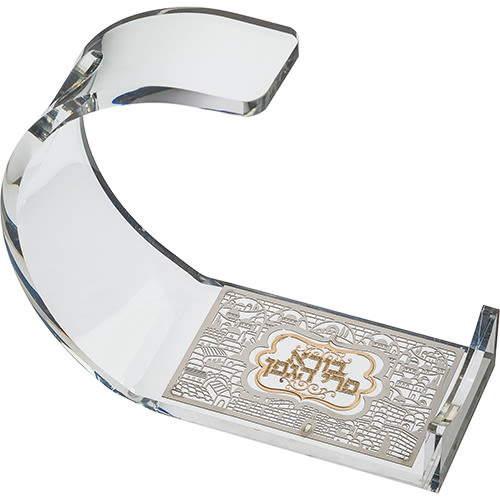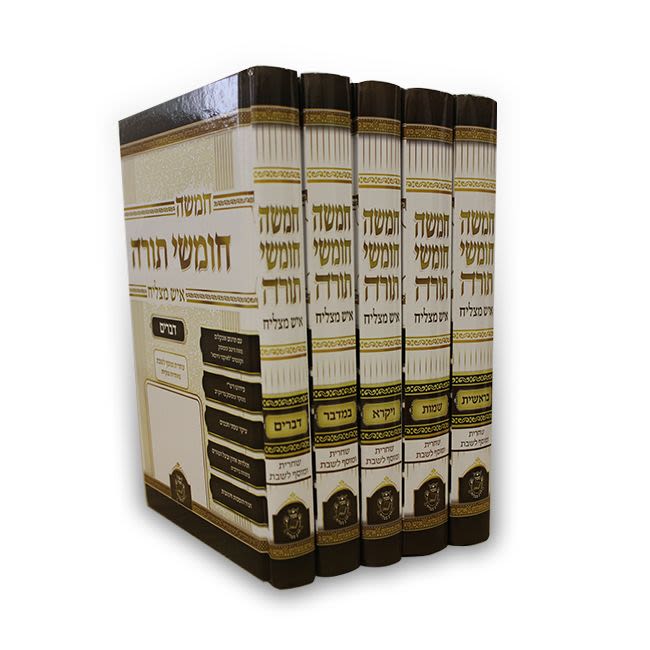
Balak: Defying the Laws of Nature
Against his will and contrary to his hopes, the wicked Bilaam was forced to bless the Nation of Israel Bilaam of course intended the above utterance...

"It is a nation that will dwell in solitude and won't be considered among the nations" (Bamidbar 23:9).
Against his will and contrary to his hopes, the wicked Bilaam was forced to bless the Nation of Israel. Bilaam of course intended the above utterance as a curse; he wanted the Jews to be considered outcasts and never accepted by any society. Non-believers throughout the ages have tried to rescind Bilaam's intent by assimilating and trying to forcibly gain acceptance by the other nations. Yet throughout Jewish history, the slightest deviation from Torah and Torah values – let alone total assimilation – has always led to tragedy.
Fortunately, Bilaam's curse isn't the decisive factor. Hashem extracts a wonderful blessing for the Jewish People from Bilaam's venomous words. Nothing is better for the Jewish people than dwelling in holiness and solitude, without the spiritual contamination of outside influences. In his classic interpretation of the Passover Haggadah, the great Abarbanel writes that in addition to the fact that our people preserved our traditional dress, language, and names in Egypt, by virtue of the separate Jewish settlement in the Goshen area of Egypt, there wasn't a single case of assimilation and the Jews were therefore redeemed from bondage.
Bilaam's apparent curse is a blessing on a much deeper level as well, with import spiritual ramifications. He says that Israel "won't be considered among the nations". Rashi interprets that Israel has an entirely separate account from the nations of the world. The Zohar and the Midrash say that Israel exists on a totally different spiritual plane from the other nations. Whereas the other nations receive their abundance by way of an exhaustive hierarchy of messengers that are clothed within nature, Hashem personally and directly feeds the Jewish people, especially those who dwell in the Land of Israel.
Our sages teach us that while the nations of the world are subjugated to the laws of nature, Israel – Hashem's chosen people – are not, on condition that they observe His commandments and devote their lives to Torah and prayer. Since Torah and prayer are above nature, those who cling to them also defy nature.
Rebbe Nachman of Breslev teaches (Likutei Moharan I:216) that our prayers lift us beyond the limitations of nature. In addition, they defy nature and can alter nature.
For example, according to nature, the job market could be sorely limited, the economy recessive, and no employment opportunities available. None of these natural limitations mean anything to Hashem. So, when people pray, Hashem can arrange for them any number of suitable jobs; if Hashem so desires, He can send them their livelihood without even working.
In light of Rebbe Nachman's above teaching, a person would have to be an imbecile to flatter an employer or to subjugate himself to flesh and blood or to the laws of nature in his efforts to bring home the bread. Prayer and emuna both defy the laws of nature, and enable The King's children – the Jewish people – to eat directly out of His blessed outstretched hand. With Hashem's help, the following parable illustrates how:
The King's son was restless. He was tired of studying those thick yellow-paged volumes of the kingdom's lore and law. The King often chastised him that a worthy prince should spend every waking hour in learning the regal volumes. He closed the book, took a deep breath, and gazed out the palace window from his princely chambers. He longed to run in the expanse of the endless green pastures. Far in the distance, he could see a few black and white specks – a herd of cows grazing on the horizon. He licked his lips; "How nice it would be to drink a fresh glass of milk right now!"
The prince slipped outside without being noticed. He exited the palace grounds and made a beeline for the inviting meadows. Like a lark, he hopped and skipped along the tall grass in the direction of the cows. He felt so free, without those heavy old volumes weighing him down. By the time he reached the grazing herd, a peasant boy began prodding the cows home in the direction of a cowshed not far away.
Just as the cows were entering the shed, the prince caught up to the peasant lad. "Are you going to milk the cows now?" he asked.
"Sure," answered the lad, "would you like to help me?"
"I'd love to!" answered the prince with excitement.
The peasant lad wore heavy coarse blue coveralls and knee-high black herdsman's boots. Contrastingly, the prince wasn't exactly dressed for the occasion of milking. His high-shined patent-leather slippers were ruined. His silk breeches were knee-deep in manure. A mixture of mud and straw covered him from head to toe. All for a glass of milk…
The prince wasn't allowed to re-enter the palace until three husky palace sentries undressed him, burned his filthy and reeking clothes, and bathed him in scathing hot water while scrubbing him from head to toe with stiff-bristled brushes. The prince shrieked in torment. After he was cleaned and dressed though, he was ushered into the King.
Patiently, the King asked, "My son, why did you close your books and soil yourself so terribly?"
"I'm sorry, Father," he replied, truly ashamed of himself. "I just wanted an intermission from my studies and a glass of milk."
"Dearest son," said the King, "do the palace grounds lack lush gardens, fragrant groves, or tree-lined pathways by bubbling brooks, that you need to search for beauty on the outside? You are the King's son! You need not milk a cow in order to drink a glass of milk! You belong in the palace, not in the cowshed. Ask me for all your needs, and I shall always arrange for them to be fulfilled."
"But Father, you are so busy! I'm ashamed to bother you for such a trivial thing as a glass of milk."
"Nonsense," said the King. "You are my only son. The entire Kingdom is worthless without you. On the contrary; I'm always happy to hear your voice…"
The Jewish people are princes and princesses – the King of King's beloved children. It's just as ridiculous for them to ask for a handout from the nations of the world as it is for our allegorical prince to leave the palace – symbolic of the world of Torah – and to soil his exquisite garments – the Jewish soul – by mingling with the country bumpkins, the nations of the world.
Like the King's son, we must never close our regal volumes for a moment. With Torah and prayer, not only are we above nature, but nature and the nations of the world become subservient to us.
May the people of Israel soon return from their exile across the face of the earth to their true home in palace of The King – the rebuilt holy Beis Hamikdash in Jerusalem, speedily and in our days, amen.











Tell us what you think!
Thank you for your comment!
It will be published after approval by the Editor.